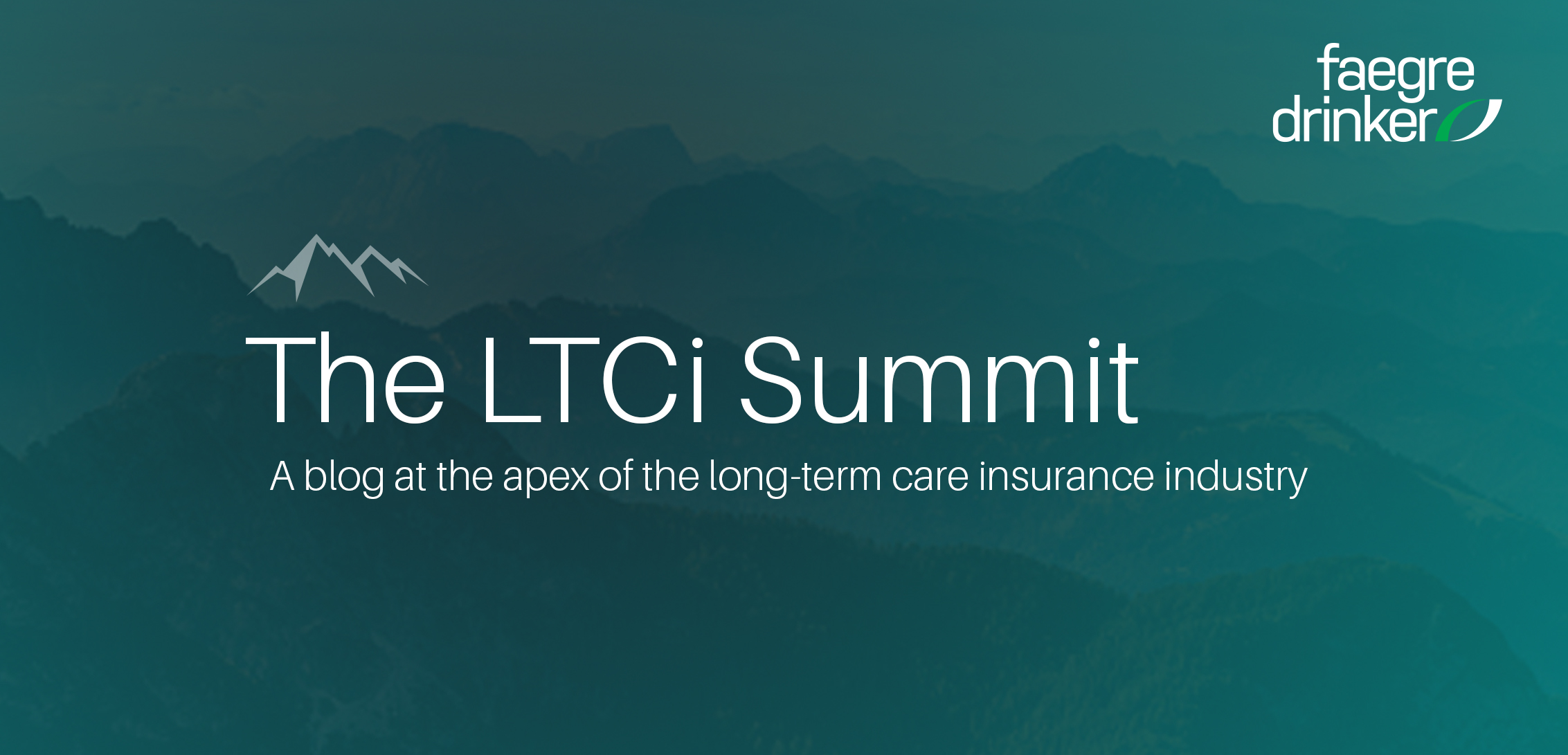In our latest podcast, I am joined by Margie Barrie* to discuss Washington’s new long-term care insurance public option, Washington Cares. See generally Wash. Stat. 50B.04.010, et seq. As many of you know, Washington permitted a one-time opt-out from the Washington Cares program—and the associated payroll tax (effective January 1, 2022) being used to fund the program—for people who purchased qualified LTCi by November 1, 2021.
After briefly discussing the key features of the law, we discuss how the exemption to the payroll tax dramatically impacted Margie’s life as a broker selling LTCi; what we heard from our carrier contacts on how it impacted new business in Washington this year; and what we are hearing about other efforts to deploy similar legislation in other states. Margie and I also discuss our plans to continue to track this significant development in long term care. We will be focusing on the impact of the Washington legislation and other states considering LTCI public options.
*Margie has worked as an agent specializing in long-term care planning since 1990. She is a recognized expert in the industry, having been named one of the industry’s top 10 power people by Senior Market Advisor Magazine and as one of the top 25 most creative people in the insurance industry by LifeHealthPro Magazine. And since 2000, she has been writing her popular column “LTCI Insider,” which now reaches 140,000 agents. Most recently, Margie published an article on the Washington Cares legislation (subscription required).
Listen to the podcast
The material contained in this communication is informational, general in nature and does not constitute legal advice. The material contained in this communication should not be relied upon or used without consulting a lawyer to consider your specific circumstances. This communication was published on the date specified and may not include any changes in the topics, laws, rules or regulations covered. Receipt of this communication does not establish an attorney-client relationship. In some jurisdictions, this communication may be considered attorney advertising.



Important topic and great interview. But very sad that motivation to buy (and sell) LTC coverage is being driven by the desire to avoid participation in a critically important social insurance program that will benefit the overall state fiscal welfare and the well-being of family caregivers and care recipients in the state. Even someone who won’t need LTC might like to know that the state has more fiscal resources for better roads, schools, public safety, etc. The “cost” of checking that policies are maintained shouldn’t be borne by the WaCares Fund which should primarily be there to pay for LTC needs, not monitoring the people who opt out. Hopefully, other states will learn from Washington and there won’t be an opt-out window in other states except for those who either buy fully paid-up policies that they can’t drop or who have existing coverage.
Buying a long term care solution should be considered a good thing and something that saves Medicaid and other state funds mightily. Whether the motivation is to save on taxes or through a vehicle like the partnership program, states should be encouraging purchase. I submit that this exemption will actually save WA state across the Medicaid and WA Cares Fund program and challenge any actuary to study this and demonstrate that the exemption is a positive for the program. Clearly there should be incentives for greater participation across the population groups and solutions that enable such participation should be encouraged.